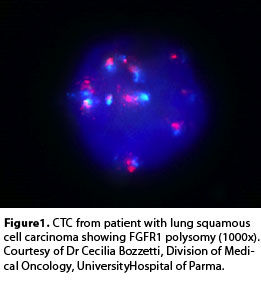Translational research is a scientific research which helps make findings from basic science useful for practical applications that enhance human health and wellbeing. With its focus on multi-disciplinary collaboration, translational research has the potential to advance applied science. This has been attempted particularly in medicine with translational medicine, research that aims to move “from bench to bedside” or from laboratory experiments through clinical trials to point-of-care patient applications.
Oncology translational research transforms scientific discoveries from laboratories, clinical, or population studies into clinical applications to reduce cancer incidence, morbidity, and mortality. Therefore in this view, its tasks are: translating preclinical findings into clinical research; validating molecular markers and characterizing mechanisms of action; partnering with industry in the development of novel anticancer agents; conducting innovative clinical research across all phases of drug development (1). The pharmaceuticaland biotech industries are very active andeffective for developing inhibitors of druggableoncogenes that have strong credentials asmolecular targets.
The development of agents which can interfere with signaling pathways mediated through the epidermal growth factor receptor (EGFR) signal pathway provides a good example of the translational research approach. In2004, a significant step forward was made in the treatment of non-small cell lung cancer(NSCLC) following the observation that somatic mutations in the kinase domain of EGFR strongly correlated with sensitivity to EGFR tyrosine kinase inhibitors (TKIs).
Mutant EGFRs (either by exon 19 deletions or exon 21 L858R mutation) show an increased amount and duration of EGFR activation compared with wild-type receptors. EGFR mutations are particularly prevalent in certain patient subgroups: adenocarcinoma histology, women, never smokers, and East Asian ethnicity (2,3) and hence are more responsive to drugs such as gefitinib and erlotinib.
Another exciting example is provided by circulating tumor cells (CTCs) in the blood of cancer patients, these cells that escape from the primary tumor and settle down at a secondary site to cause metastasis may give a better insight into the most appropriate therapy.Detection and characterization of these cells is a promising method for both diagnosis and clinical management of cancer patients as well as to track the severity of a cancer or efficacy of a treatment (4). These CTCs can be detected by immunomagnetic systems by using antibodies against epithelial markers such as cytokeratins. Prospective clinical trials have established that CTCs presence in blood is correlated with poor outcome and lower survival rate. It has recently emerged that CTCs may provide important prognostic and predictive information for the treatment of lung cancer patients (5). In figure 1, FGFR1 gene copy number was quantified by fluorescence in situ hybridization (FISH) on CTCs of patients with squamous cell carcinoma of the lung (SQCLC). Fibroblast growth factor receptor 1 (FGFR1) gene amplification is detected in about 20% of primary SQCLC and leads to increased downstream signalling of the corresponding transmembrane receptor, which represents a potential target of several selective FGFR1 TKIs.
The challenge of translational research in the near future will be to generate hypothesesfor personalized anticancer medicinethrough a continuous interface between basic scientists and physicians bytaking advantage of innovative technologies suchas microarrays, genome sequencing and proteomic analysis useful in the battle against cancer.
- Simon R. Translational research in oncology: key bottlenecks and new paradigms. Expert Rev Mol Med. 2010 7;12:e32
- Jill E. Larsen, and John D. Minna. Molecular Biology of Lung Cancer: Clinical Implications. Clin Chest Med. 2011; 32(4): 703–740.
- Metro G, Crinò L. Advances on EGFR mutation for lung cancer. Transl Lung Cancer Res 2012; 1: 5-13.
- Williams SC. Circulating tumor cells. Proc Natl Acad Sci U S A. 2013; 26;110(13):4861
- Krebs MG, Sloane R, Priest L et al. Evaluation and prognostic significance of circulating tumor cells in patients with non-small-cell lung cancer. J Clin Oncol 2011; 29:1556-1563.











